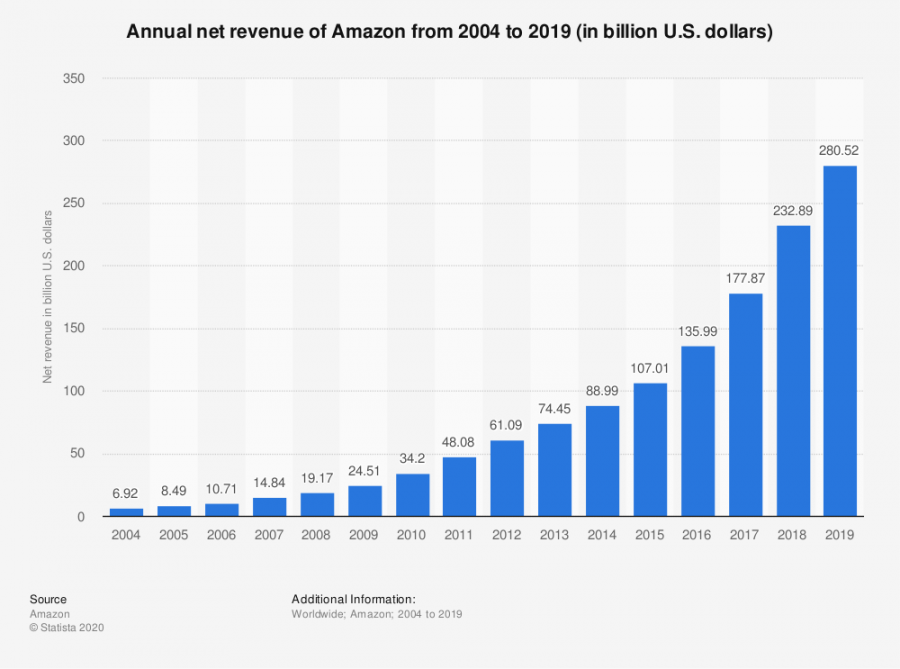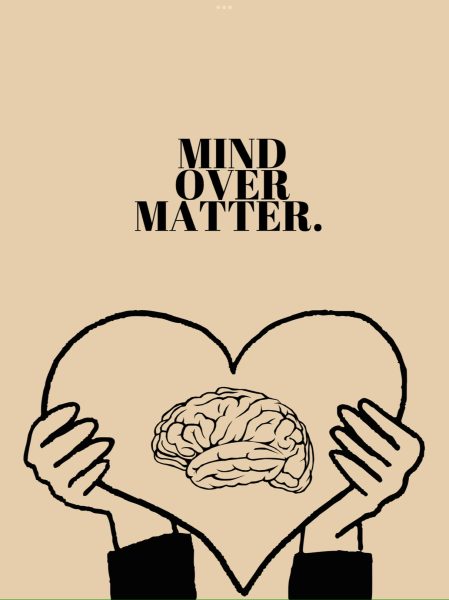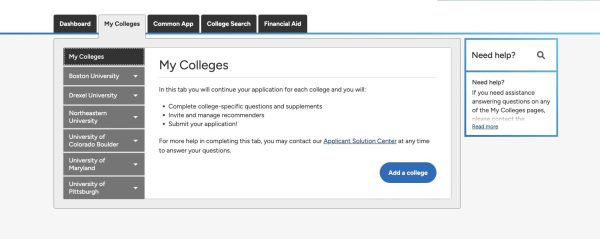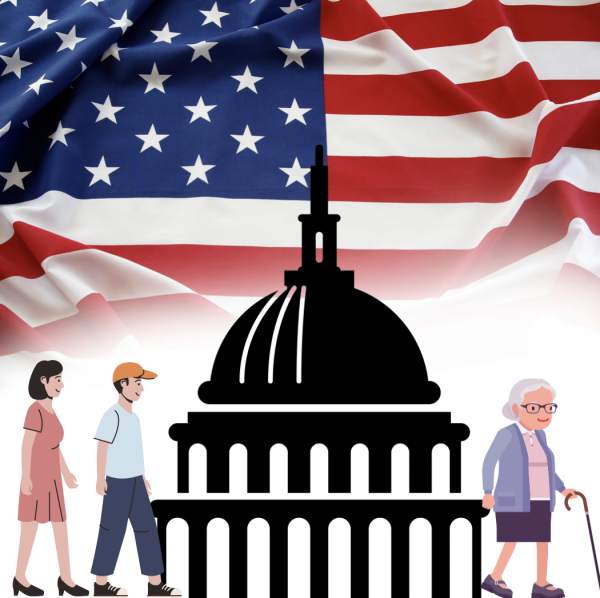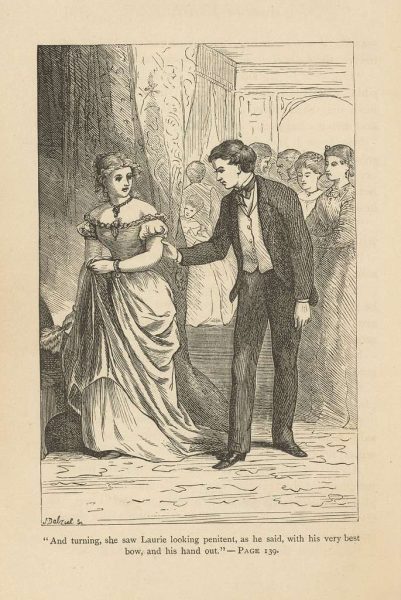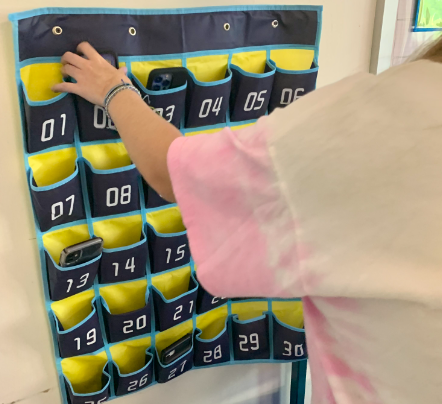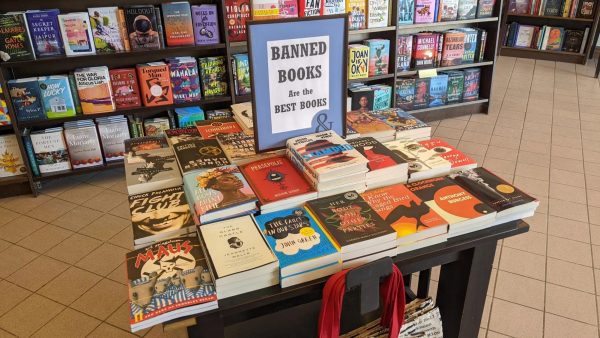Amazon’s retail dominance spells the end for widespread in-person shopping
As more and more malls find themselves going under, in-person retailers have a larger cause for concern; it’s a concern that has only grown worse over the course of the ongoing coronavirus pandemic.
Ever since the early 2010s, Amazon has skyrocketed to the forefront of retail. With the COVID-19 outbreak eliminating many competitors, the company has grown even further.
The year is 2005. You’re walking around the Echelon Mall in Voorhees, New Jersey with your family on a quiet December evening. As the chilly breeze whips past your face, you step into the mall’s warm, nostalgic atmosphere. “Last Christmas” bursts through the speakers, as you pass all of the decade’s most popular retail landmarks: GameStop, Spencer’s, the Disney Store, and others.
With the smell of delicious, freshly-baked Auntie Anne’s pretzels wafting towards your nostrils, you feel like you could stay in this blissful heaven forever. Unfortunately, that’s not what the 2010’s had on the agenda.
Fast-forward to the present day, and the now-renamed Voorhees Town Center is almost unrecognizable. All of your favorite stores have long since shuttered, leaving nothing behind except the fond memories of what once was. You can only make out the faint echoes of Wham’s holiday hit, rapidly fading away through the desolate, barren emptiness.
The former Echelon Mall serves as just one victim of the retail industry’s rapid, ongoing shift from brick-and-mortar establishments to online marketplaces. Ever since the early 2010s, malls have struggled heavily to attract returning customers, as cheaper and more-convenient alternatives establish themselves on the Internet. As more and more malls find themselves going under, in-person retailers have a larger cause for concern; it’s a concern that has only grown worse over the course of the ongoing coronavirus pandemic.
March 13th marked the true beginning of a memorable year to say the least, and for retailers, it was no different. With stay-at-home mandates issued across the nation, people had their hands tied in terms of essential retail options. All non-essential businesses were immediately closed down, leaving supermarkets and hospitals as just about the only places you could go.
Since it was the onset of the largest nationwide pandemic in over a hundred years, not everyone felt comfortable enough to even collect groceries once a week. In times like these, what did people do? Mr. Jeff Bezos has the answers.
Bezos, the wealthiest man in the world (with a net worth of around $185 billion), is the founder and CEO of a little-known tech upstart called Amazon. Have you heard of it? No, didn’t think so.
Seemingly everyone relies on Prime packages for their every need and desire. From aquariums to zucchini squash, there seems to be nothing that you can’t purchase within its twelve-million product catalog. ⅓ of Americans (95 million) hold a Prime membership according to RepricerExpress, which is an astronomical amount.
In every sense of the word, Amazon has revolutionized and redefined what it means to go shopping. 62% of U.S. shoppers say they shop more online now than they did before the pandemic, according to Bazaarvoice. Although this is largely due to COVID-19, Amazon had been on a meteoric ascent well before the pandemic hit.
According to Statista, Amazon has brought in $260 billion in net revenue through Q3 in 2020, which is close to double what they made just four years ago in 2016. With the always-booming holiday season upon us, that number only stands to skyrocket.
Let me put into perspective just how much money Amazon rakes in. Every second, Bezos makes a cool $4,722, according to RepricerExpress. That equates to $283,000 every minute, and more than $17 million every hour.
As more people submit themselves to the rule of King Bezos every day, the future grows uncertain for physical retailers. Why would someone want to drive all the way to a store, which might not even be nearby, to purchase something? With Prime two-day (and now overnight) free shipping, customers can save money that would otherwise be used for gasoline.
The truth is, we’ve likely reached the end of the shopping mall era. Small businesses will survive, as will restaurants and supermarkets. Amazon hasn’t quite monopolized the food industry yet, but it’s likely only a matter of time until it does.
The only businesses that stand to push back against Bezos are ones that offer a unique in-person experience—one that cannot be replicated with a phone, tablet, or television. My favorite record stores, Tunes in Voorhees and Phidelity Records in Westmont, will stick around, but only as the demand for physical music exists.
There’s nothing I enjoy more than going shopping for things I love, with the people I love. But over the years, the paradigm has shifted to the digital frontier. And with the COVID-19 pandemic, Amazon seems to have drilled the final nail in the coffin.

